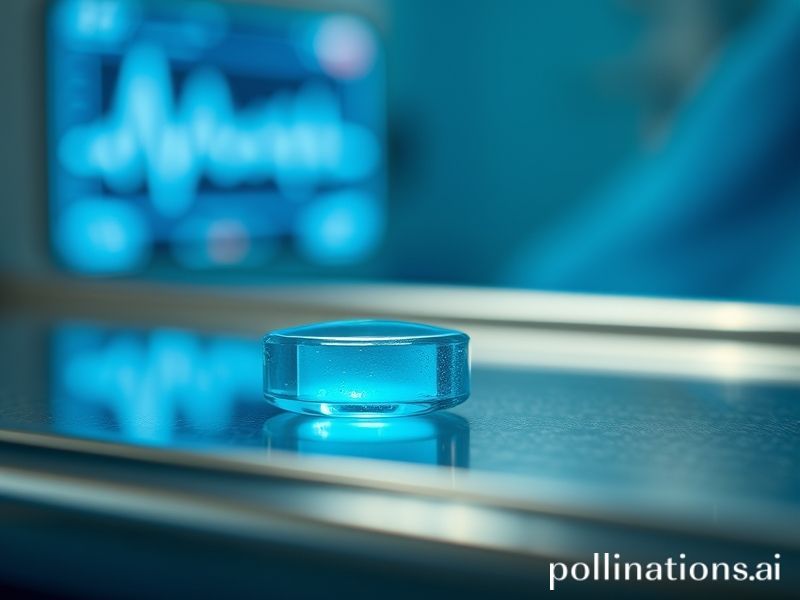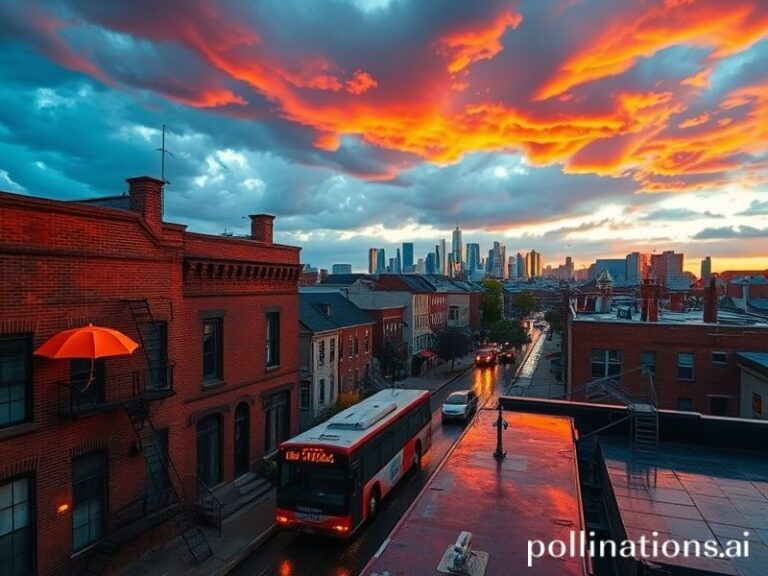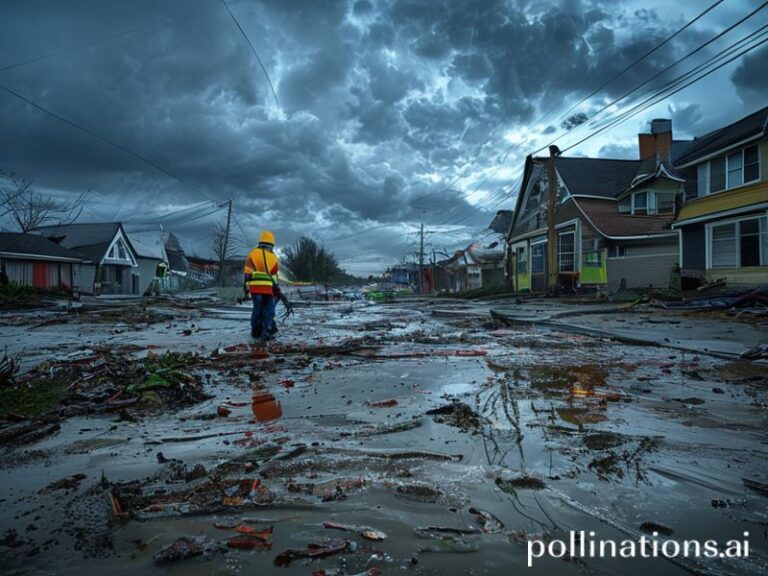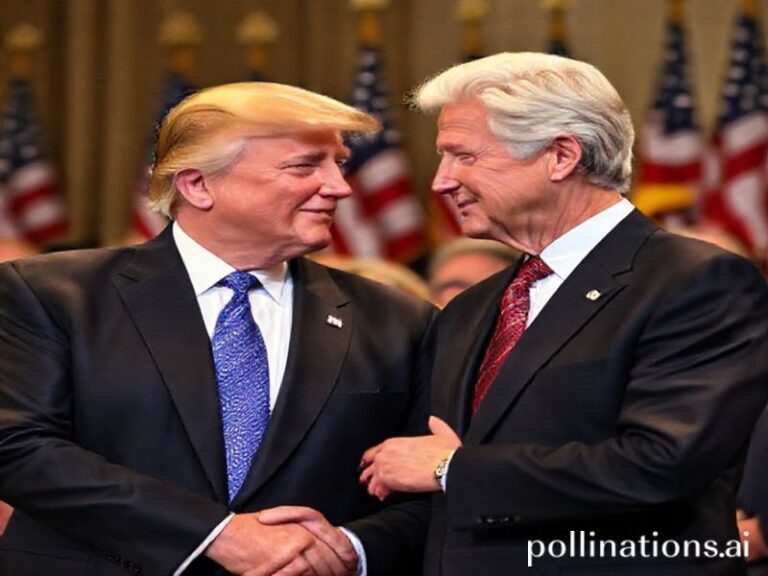Global Heartbeat Slowdown: How Beta Blockers Became the World’s Shared Chill Pill
Beta Blockers: The World’s Favorite Chill Pill, Now Available at a Panic Near You
Stockholm, Paris, Mumbai—wherever you look, the planet’s pulse is thumping like a techno track on 1.5× speed. Enter beta blockers, those little pastel tablets that whisper “shhh” to the sympathetic nervous system and let overstressed humans pretend they’re not three missed emails away from spontaneous combustion. From Swedish tech workers popping 20 mg of metoprolol before stand-up meetings to Nigerian heart-failure patients rationing bisoprolol like gold dust, the same drug is simultaneously a lifestyle hack and a lifeline. One molecule, two wildly different realities—capitalism’s favorite magic trick.
In the Global North, beta blockers have become the WD-40 of modern anxiety. A Berlin startup founder confides—over oat-milk cortados, naturally—that he chews 10 mg of propranolol before pitching VCs, “so my resting tremor doesn’t set off the earthquake sensors.” Venture capitalists, who’ve already microdosed psilocybin for creativity, nod approvingly at this biochemical risk mitigation. Meanwhile, on Wall Street, traders wear smartwatches that vibrate when their heart rate hits 120; a discreet sublingual tablet keeps them in the green zone long enough to short another rainforest. The irony, of course, is that the same drugs invented to keep failing hearts pumping are now mostly deployed to keep spreadsheets from exploding.
Travel south and the story darkens—literally, because lower-income nations still face the original agenda: actual cardiac calamity. Kenya imports generic atenolol from India at 3¢ a pill, yet supply-chain hiccups leave rural clinics empty-handed just when postpartum cardiomyopathy decides to gate-crash a village. In Brazil’s favelas, community health workers stage impromptu lotteries to decide which hypertensive grandmother gets the last blister pack. The World Health Organization lists metoprolol as an “essential medicine,” a bureaucratic flourish that sounds noble until you realize it merely certifies what the poor already knew: the drug is essential, full stop. The rest is paperwork and prayer.
Geopolitically, beta blockers are a quiet instrument of soft power. When the U.S. sanctions Iranian banks, Swiss pharmaceutical giants still manage to reroute carvedilol through Dubai free zones—because even realpolitik yields to the lobbying power of a failing septuagenarian’s left ventricle. China, not to be outdone, has bulk-manufactured nebivolol so efficiently that European wholesalers now resell “Made in Zhejiang” tablets back to Germans at a markup worthy of artisanal sauerkraut. Somewhere, a WTO lawyer drafts footnotes about tariff lines while chewing propranolol to keep his hands from shaking over the keyboard. The global supply chain has become a Möbius strip of anxiety medication.
And then there’s the meta layer: the existential feedback loop. Climate scientists—whose own cortisol levels spike every time they refresh the Arctic sea-ice dashboard—have started sharing prescription hacks on encrypted Slack channels. Nothing says “late-stage capitalism” quite like self-medicating so you can calmly document the apocalypse. Meanwhile, Russian chess grandmasters and South Korean esports prodigies micro-dose the same compound to steady their trigger fingers, uniting Cold War stereotypes and K-pop stans under one pharmacological roof. If the aliens ever arrive, they’ll conclude that Earth’s dominant species solved fear by muting the heart instead of fixing the danger. Grade-A coping, class of Homo sapiens.
So what does the future hold? Health economists predict a 6% annual growth in global beta-blocker sales until 2030—roughly the same curve as sea-level rise and political conspiracy theories. In high-income countries, expect boutique “cardiac mindfulness” retreats where guests pay $4,000 to be taught breathing exercises and handed a generic pill they could’ve bought for 15¢. In low-income regions, drone deliveries may finally bypass potholes and kleptocrats, dropping beta blockers from the sky like ethical cluster bombs. Either way, the molecule that started life as a humble blood-pressure cuff in pill form has become a mirror: reflecting who gets to calm down, who must stay scared, and who profits from the difference.
Bottom line: the world’s collective heart is racing, and beta blockers are both the pacemaker and the pacifier. Until we fix the reasons our pulses pound—be they melting glaciers, market crashes, or merely another push-notification apocalypse—we’ll keep swallowing tiny white lies twice a day with water. Bon appétit, civilization.







